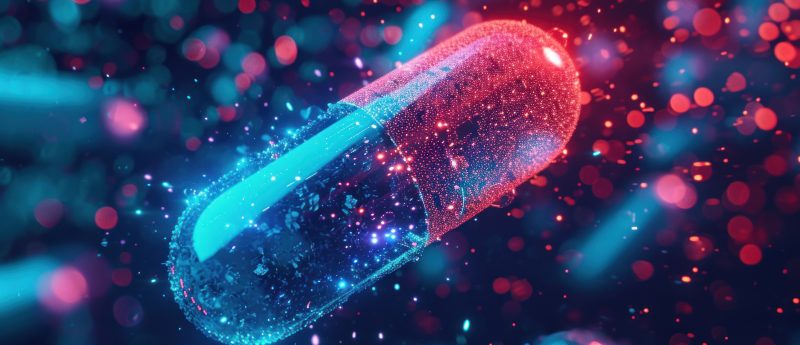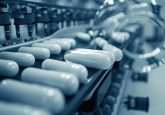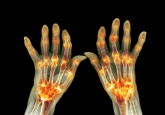Recognizing the importance of glycosylation in human diseases: an interview with Heather Desaire

Ahead of ASMS 2020 Reboot we caught up with featured speaker, Heather Desaire (Professor, Department of Chemistry, University of Kansas, KS, USA). Heather told us about her research background, current interests and what she plans to discuss at ASMS 2020: from vaccines and biotherapeutics development to biomarker discovery. Heather also explained the significance of recognizing the importance of glycoprotein analysis and gave us her thoughts on the virtual format.
Make sure you don’t miss Heather’s presentation, ‘Glycoprotein analysis for understanding human disease’ taking place online on June 1 between 11:45–12:30 [CDT] at ASMS 2020 Reboot.
I am a Professor of Chemistry at the University of Kansas (KS, USA). I completed my PhD at UC Berkeley (CA, USA) in 2001, under the direction of Julie Leary. My graduate research project primarily involved differentiating isomeric glycans by mass spectrometry. At the time, we mainly focused on monosaccharides and disaccharides and the appealing part for me was using a technique that was primarily designed to measure mass for differentiating diastereomers. I like being unorthodox.
And speaking of unorthodox, I applied for my faculty position at the University of Kansas while still in graduate school. I think they must have had several more qualified candidates turn them down, because they offered me the position. We agreed that I would start in August 2002 and I would finish my degree in December 2001. So I had about 7 months to do something useful before I would begin my ‘real job.’ I took an internship at a contract research lab and did some MS analysis on pharmaceuticals. This work gave me some insights into the challenges and needs of the pharmaceutical industry and it helped to shape my long-term research interests.
Since 2002, I have risen through the ranks at the University of Kansas and my research program has consistently involved three themes: glycosylation, mass spectrometry and number crunching (developing software and data science). Our motivating driver for doing research in these areas has always been to advance human health research.
Why is glycoprotein analysis an important part of bioanalysis?
First of all, about half of all proteins are glycosylated, so if you study proteins, there’s a good likelihood that the protein you are interested in is glycosylated. But more important than the prevalence of glycosylation is the fact that the modification impacts biological processes. You can take a protein-based drug, like erythropoietin for example, and do nothing to it but modify its glycans and the drug’s safety and efficacy profile will change. So clearly, pharma companies have to pay attention to glycosylation on their biotherapeutics. But the glycans not only impact biological processes (like receptor binding, protein clearance, immune activation), they are also impacted by biological processes. The glycans on a protein will be altered if the conditions within the cell producing it change. If the enzymes or cofactors that put the glycans on proteins become more scarce, the glycosylation profile of the resulting proteins will reflect that scarcity. Oxidation levels within the cellular environment can also impact protein glycosylation. A condition as complex as aging is another example where the biological state impacts a protein’s glycan profile. While this phenomenon is cool in its own right, it’s also important because it means that glycans are an ideal class of compounds for biomarker discovery. They are like little thermometers, indicating the health of the cell from which they were produced. So if you want to find a biomarker for a certain disease, a good place to look is the glycans on the proteins that were generated by the diseased cells.
What topics are you planning to cover in your presentation?
I want to give attendees an overview of how mass spectrometry contributes meaningfully to human health research problems where glycans take center stage. I’ll discuss why glycosylation analysis is important in vaccine development, in the production of biotherapeutics and in biomarker discovery, along with a few other related applications. I’ll also talk about how different types of mass spectrometers can contribute to the field in different ways and I’ll close with an application that’s sparked my attention recently, the combination of machine learning with glycosylation analysis for biomarker discovery.
Looking forward to ASMS 2020 Reboot? You might also like…
- Interview with ASMS 2020 speaker: Jian Guo on data acquisition modes for LC–MS-based untargeted metabolomics
- ASMS 2020 Reboot summary – what Bioanalysis Zone is looking forward to
What do you hope attendees will gain from your presentation?
Well, I will be kicked out of the ‘Secret Society of Glycosylation Analysts’ if I didn’t work to instill the point that glycans are important. Okay, there really isn’t a secret society… that I know of… but even so, many of us in the field, me included, often feel that the glycosylation aspects of human health problems are underappreciated. So it would be nice if my presentation helped to give more researchers a reason to care about glycans. I am also hoping to (subtly) make the case that you don’t need a million dollar mass spectrometer to do meaningful, state-of-the-art work in this field. Some really cool glycosylation analysis work these days is being done by GC-MS. You can also make important contributions with a MALDI TOF. And, best of all, you can drive forward monumental advances while being sequestered at home, inside your closet, without access to any equipment at all. One thing that sometimes disappoints me about ASMS is the ‘arms race’ component: lots of attention is given to the fanciest, most expensive instrumentation. Clearly, high-end instrumentation drives important advances in the field, but so too, can the researchers sitting at home – with nothing but a laptop — if they have good ideas and the drive to do something meaningful. So, in sum, I’d like people to see that innovation in the field can happen in a variety of ways.
What impact do you the online format may have? What changes have you made to ensure your presentation will be a great learning opportunity for all attendees?
Online presentations are harder than in person. I teach a mass spec class and had to do half of it as an ‘online’ course this spring, so I am already familiar with many of the challenges. It’s especially hard for those of us who like to involve the audience in a presentation. When I give an (in person) seminar, I often get the audience involved by asking questions, calling on people, asking them to “raise your hand if…” But when you’re talking to your computer, and you don’t see anything but your slides and the furniture in the room, it’s really hard to be as engaging. When it’s just me and my laptop, my laptop never looks confused when I say something too quickly and it never laughs at my jokes, even on the rare occasion that they are funny.
“…there is an upside… [ASMS 2020] will probably be the biggest single dissemination of mass spectrometry-related research that the field has ever experienced.”
One thing I did, to try to keep my presentation accessible and engaging under these conditions, is simply put more effort into preparing. Since I won’t be able to tell if the audience is engaged or not, I made my grad students sit through an early version of the presentation – by zoom of course. Afterwards, they offered good feedback on what worked and what didn’t. And I’ve been working to refine my ‘story’ so it’s accessible to a diverse audience.
While we can all easily come up with complaints about online presentations, there is an upside of course. This format increases access to information and that’s an enormous advantage. People who would not have been able to attend the meeting, regardless of the COVID-19 epidemic, will be able to view a full meeting’s worth of content. It will probably be the biggest single dissemination of mass spectrometry-related research that the field has ever experienced. So new ideas will be catalyzed in people who would otherwise never have an opportunity to participate. And that’s truly exciting.
The opinions expressed in this feature are those of the author and do not necessarily reflect the views of Bioanalysis Zone or Future Science Group.






